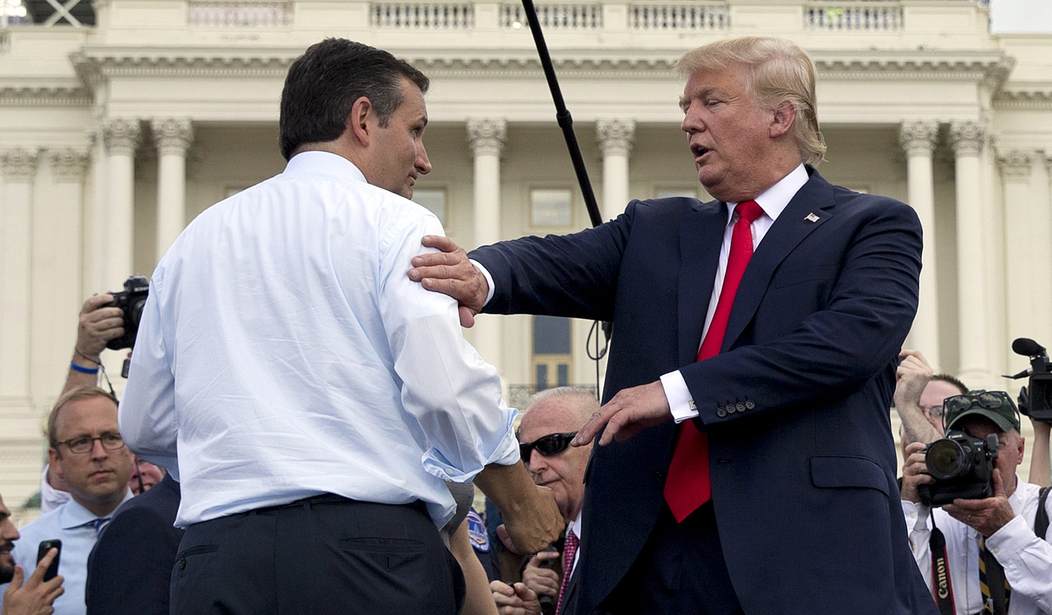Tuesday night’s Nevada Republican caucuses had some very bad news for Ted Cruz. Cruz, who rode a wave of white evangelical support to victory in Iowa, lost badly to real estate tycoon Donald J. Trump, even among evangelicals, and by larger margins than he lost by in New Hampshire and South Carolina.
Pundits struggle to explain why self-described evangelicals support a man who cannot recall ever asking God for forgiveness, has had three wives, has boasted about sleeping around, and can’t tell a communion plate from an offering basket. National Review‘s J.D. Vance has perhaps the best explanation for this phenomenon:
The South Carolina election results suggest that practicing Christians in the state voted differently than their peers who attend church less regularly. Take, for instance, one of Trump’s strongholds, the area in and around Barnwell County, where Cruz collected less than 20 percent. Unsurprisingly, church-attendance rates in Barnwell lag behind those in the rest of the state. Compare that to Greenville County, which has one of the highest rates of church attendance in the state: It was one of Trump’s worst counties. The pattern generally holds across South Carolina: Cruz does well where people regularly go to church; Trump does better where they don’t.
Vance notes that exit polls measure religious affiliation by self-identification, but cannot determine whether a self-described evangelical regularly attends church. Indeed, approximately 80 percent of Americans identify as Christian, but only about 20 percent regularly attend services. Trump may not be a true believer, but that’s okay because most evangelical voters aren’t either. This is, of course, a huge problem for Cruz. He may get the vote of most practicing Christians, but a large number of Christians — especially in the South — are not practicing.
The Federalist‘s Ben Domenech presents another key to understanding Trump’s evangelical support: they think they’ve already lost the culture war, and want the strongest possible champion of their values to fight back. Following the legalization of gay marriage last year, the indictment of Planned Parenthood videographer David Daleiden, and the $135,000 fine on bakers for declining to cater a same-sex wedding, Domenech notes the despair and rage of many people who are considered “on the wrong side of history.”
“In this post-apocalyptic environment, it becomes increasingly clear why southern evangelicals would drop their requirements that a political leader who seeks their backing be one of them, ideologically or faithfully.” These voters, Domenech argues, “have no illusions about [Trump’s] unbelief. The difference is that while they believe Ted Cruz and Marco Rubio would be one more round of good soldiers for their cause, they think Donald Trump would be a tank.”
That’s assuming, of course, that Trump does not perform another ideological back flip. He’s supported abortion and single-payer healthcare in the past, so what’s to stop him from doing so again? Voters may see him as a tank, but he may end up being a Trojan horse.









Join the conversation as a VIP Member